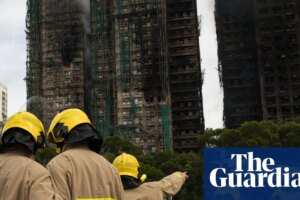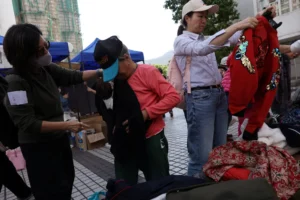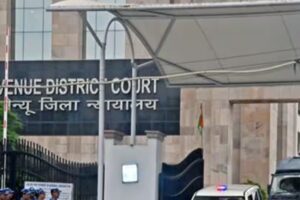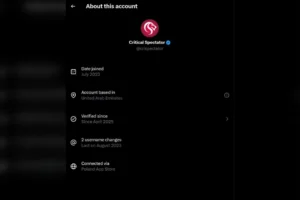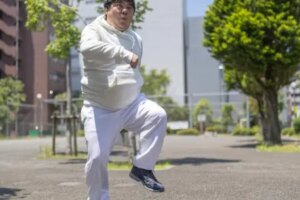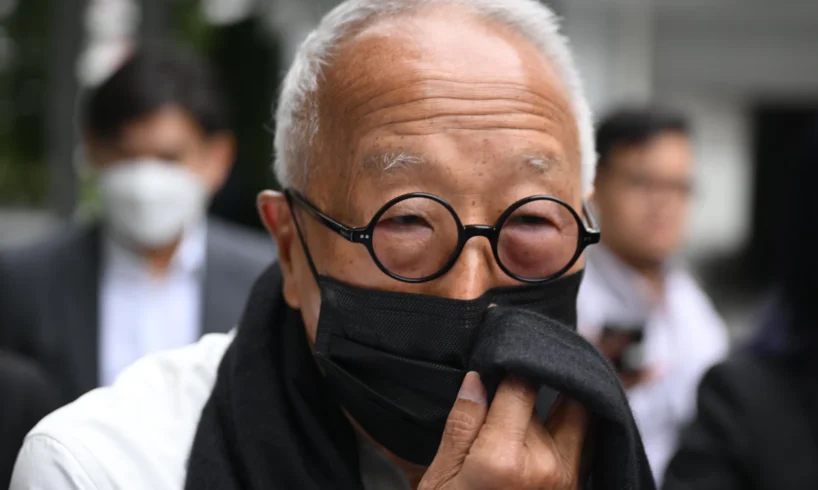
[SINGAPORE] Property tycoon Ong Beng Seng was spared jail time on Friday (Aug 15) as the court showed judicial mercy; he was instead fined S$30,000 for dealings with former transport minister S Iswaran, who had been convicted of accepting gifts as a public servant.
Principal District Judge Lee Lit Cheng agreed with the prosecution and the defence that judicial mercy should be extended, saying “the clear and undisputed medical evidence” established that a prison sentence would put Ong’s life at high risk. She added that if Ong were not ill, an appropriate sentence would have been three months’ jail.
Courts exercise judicial mercy by imposing lenient sentences in exceptional circumstances, such as when accused individuals have a serious medical condition, or when imprisonment would endanger their life.
Ong has multiple myeloma, an incurable cancer that has compromised his immune system and made him vulnerable to life-threatening infections. The 79-year-old’s lawyers had argued that a jail term would thus put his life at great risk.
The prosecution accepted this and did not object to him receiving the maximum fine of S$30,000, instead of the custodial sentence of eight weeks’ jail that would ordinarily have been appropriate. Ong was ordered to pay the fine by the end of Friday. He will not be appealing against his sentence.
The offence of abetting the obstruction of justice carries up to seven years’ jail, a fine, or both, with S$30,000 being the maximum fine that the district court can impose under the Criminal Procedure Code.
BT in your inbox
Start and end each day with the latest news stories and analyses delivered straight to your inbox.
Exceptional circumstances
In her judgment, District Judge Lee said she was satisfied that Ong’s severe and exceptional medical conditions met the high threshold for judicial mercy.
First, she noted that his fragile state meant that he would be at high risk of falling or being exposed to infection, even if he were to be placed in the prison’s medical ward. The risk of infection would rise significantly as the rotating shifts of prison officers and medical staff would expand his exposure to pathogens. Further, his risk of falling would be “significantly heightened” due to being disoriented in an unfamiliar environment without caretakers who understand his ailments and needs.
As for the two overseas trips which Ong took in 2024 and 2025, District Judge Lee was satisfied that they “do not detract from the severity of his medical condition”.
She noted that both journeys were “carefully managed” through travel on Ong’s private jet, rather than commercial travel, reducing exposure to infection. The fact that he had to make multiple stops, rather than take a direct flight, further underscored his condition, she added.
She also said that the offence’s severity was reduced, as Ong’s actions did not hinder the Corrupt Practices Investigation Bureau’s (CPIB) probe, and both men were ultimately sentenced.
Although Ong accommodated Iswaran’s request to pay for the trip after the flight manifest was seized, he ensured proper documentation was maintained without attempting to conceal the five-month delay, the payment, or the trip.
“On balance, I find that the humanitarian considerations ought to prevail in this case,” she said. “The medical evidence unequivocally shows that a custodial sentence would place the accused’s life at substantial risk.”
While some might see this as a case of wealthy offenders receiving better healthcare than less-privileged ones, such a view would be “misguided” and misconstrue the courts’ focus, she added.
What is critical is not whether an offender gets a lower standard of care if incarcerated, but whether imprisonment would significantly increase the risk to their life, she explained. If there is no increased risk, then there is no need for judicial mercy.
From graft probe to sentencing
Ong’s sentencing concludes the legal saga of Ong and Iswaran’s dealings, during which Iswaran was convicted for accepting gifts while serving as transport minister.
The former minister was first investigated by the CPIB in 2023. Though he initially claimed trial, he later pleaded guilty on Sep 24, 2024, to four charges of accepting gifts as a public servant and one charge of obstruction of justice.
Iswaran received 12 months’ jail for his offences – a heavier sentence than what the prosecution had asked for. He began his sentence that October. On Feb 7, he was placed on the Home Detention Scheme. He has since completed his detention.
Ong’s involvement stemmed from his role in bringing the Formula 1 race to Singapore. Iswaran had been minister-in-charge of trade relations and was the government’s chief negotiator with the Singapore GP on F1-related business matters.
In December 2022, Ong invited Iswaran to Qatar, and they flew to Doha on Ong’s private jet. Iswaran then returned to Singapore on a business-class flight. The flight to Doha was worth US$7,700, and the return flight, S$5,700. Ong also made arrangements for a one-night stay at Four Seasons Hotel Doha, valued at S$4,737.63.
In May 2023, when CPIB seized the flight manifest for the Doha trip during a separate investigation, Ong informed Iswaran of this by phone. The next day, Iswaran asked Ong to have Singapore GP bill him for the trip expenses. Ong agreed – an act that constituted obstruction of justice.
